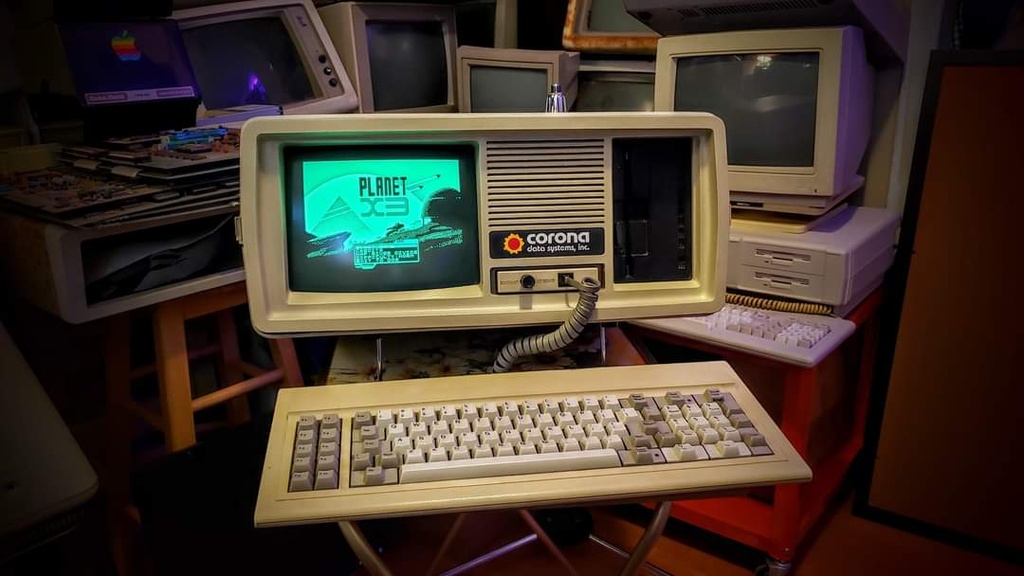Corona PPC-400 (1984-1987)
Corona Data Systems, later renamed Cordata, was an American personal computer company that played a significant role in the early days of IBM PC-compatible systems. Let’s delve into its history:
- Founding and Early Years:
- Founded in mid-1981 by Robert Harp, who co-founded Vector Graphic, and Robert Steven Kramarz, who became the General Manager.
- The company’s first products were 5MB and 10MB external hard drives with interface cards, connecting them to the Apple II and the IBM PC. These drives were sold under the brand name Starfire.
- In 1983, Corona released its original PC model, which was later followed by additional desktop and portable PCs as the Intel x86 architecture evolved.
- Notable Models:
- Corona PPC-400: Introduced in 1984, this portable PC (PPC) stood out for its elegant and clear screen fonts. It featured a built-in carrying handle on the back and weighed around 28 lbs. The desktop version was known as the PC-400.
- The company also developed an integrated desktop publishing system called Intellipress, offering software bundles like Aldus PageMaker or Ventura Publisher.
- Their laser printer, the LP300, used the Canon CX engine but had a unique approach: the raster image processor was on an interface card inside the PC, partially utilizing the PC’s processor for image processing, thus reducing costs.
- Daewoo Acquisition and Name Change:
- In mid-1985, the Daewoo Group of South Korea invested in Corona and acquired a controlling interest.
- As a result, Corona Data Systems was renamed Cordata in 1986. This change aimed to reflect diversification and distance the company from being solely identified as a “PC clone” manufacturer.
- Unfortunately, founder Robert Harp resigned in 1987, accusing Daewoo of transforming the company into a paper-only entity for loss write-offs1.
While Corona Computers may not be as well-known today, their contributions to the early PC industry were significant, especially during the formative years of IBM PC compatibility.
